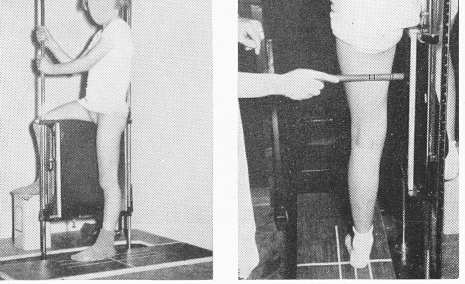Auxology Update
October 11, 2011
Auxology is the highly multi-disciplinary science that studies all aspects of human physical growth. It includes such diverse fields as economics, medicine, nutrition, and anthropology. Auxologists could, and perhaps should, play a key role in inspiring the cultural shift needed in order to accomplish a smaller mankind. However, most auxologists seem rather attached to the old paradigm of growth as a qualitative increase of some sort. It’s a concern well illustrated by the writings of the famous economist and auxologist, as well as Nobel prize winner, Robert W. Fogel. The central notion of all his research is that taller people are healthier people, and will remain to become taller and thus healthier into the future. This is at least debatable, as Thomas Samaras points out in response to Fogel’s latest writings: “I have studied the ramifications of increasing body size on our health, longevity, resources and pollution. Increasing body size is a serious threat to our survival. In addition, worldwide findings show that shorter people under reasonably healthy environments tend to live longer.”
But what is true or false is perhaps not the main issue. The point is that auxology IS the science of growth and therefore by default is inclined to regard the process of growth from a positive perspective. So perhaps this lob-sided view is to be expected from an economist like Fogel who operates in a field where growth (of the economy) has been turned into a mantra. The growth and size of the human body, especially if we look at the trend to become taller, should never without questioning, not even by auxologists, be regarded as positive as such. Auxology needs an update.
[…] A recent study in New Zealand assessed whether increasing maternal age would be associated with changes in height, body composition, as well as lipid and metabolic profiles in childhood. Maternal age at first childbirth has increased considerably over the past decades. Most children in developed countries nowadays are born to mothers aged over 30 years. Unfortunately this increasing maternal age is linked to greater risk of type 1 and type 2 diabetes, higher blood pressure in childhood, complications during pregnancy and physiological changes in the reproductive system such as alterations in hormone levels. And now on top of these increased risks, baby’s of older mothers also turn out to be taller. Although there are certain advantages such as a reduction in abdominal fat and improved insulin sensitivity, children born of mothers over 30 were also an average 1,5 cm taller than those of mothers under 30. The researchers are not sure how to explain the findings. Perhaps, they suggested, the hormonal mix produced during pregnancy by an older woman differs from that made by her younger counterpart. Not surprisingly the researchers then define the taller children as having a favourable phenotype. Why? Because they’re taller? Once again it shows how the auxological confusion about height and health is rooted deeply within the scientific community. Being tall is not necessarily healthy. […]